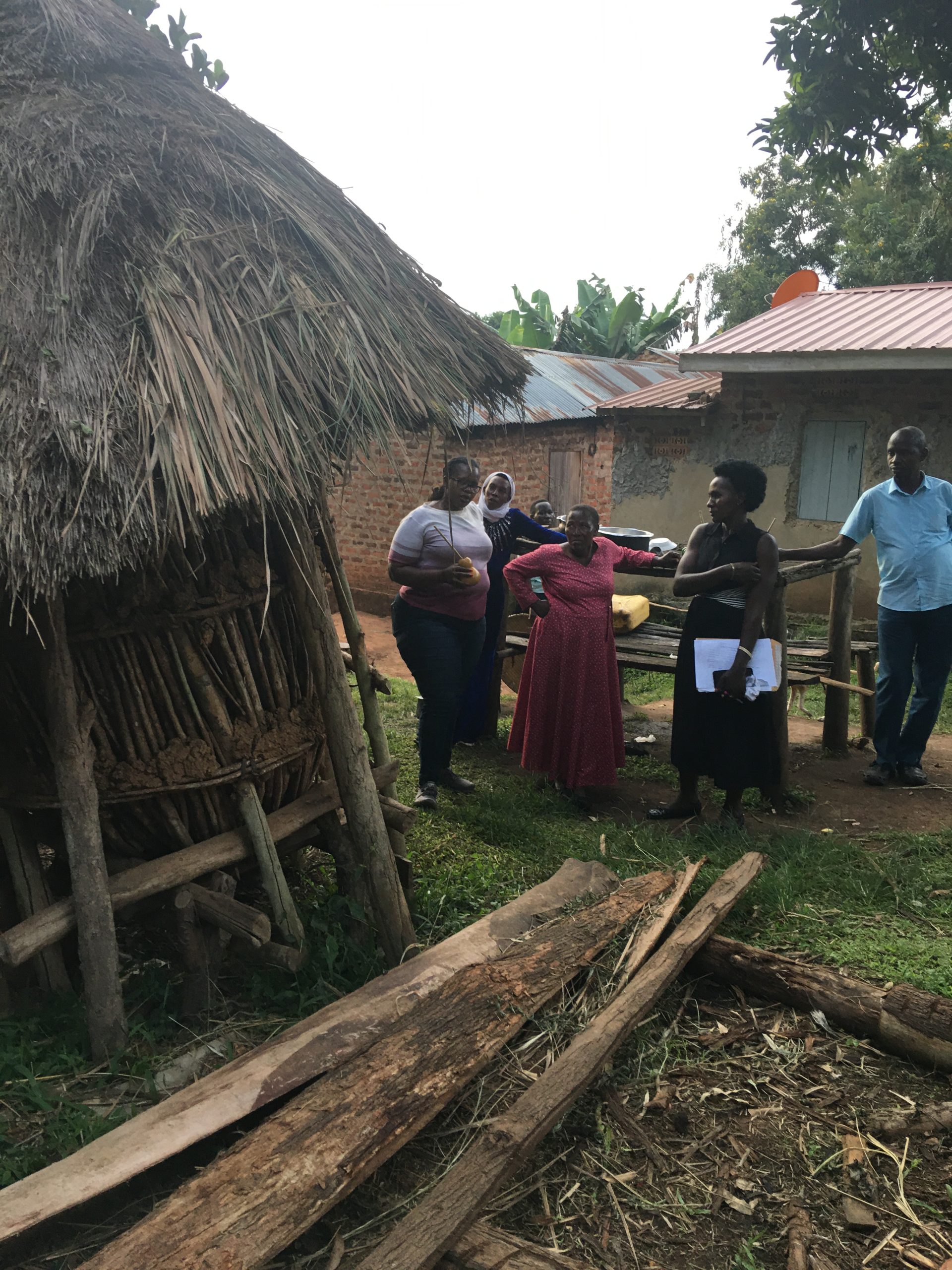Thursday, December 2nd, 2021 | By

African Biodiversity Network (ABN) has pledged to partner with National Association of Professional Environmentalists (NAPE) to promote indigenous seed governance for improved livelihoods and food sovereignty and strengthen cultural governance systems to conserve the ecosystems.
This was after the ABN Communication, Partnership and Advocacy Coordinator, Venter Mwongela, visited Hoima and Kikuube districts to understand NAPE activities in communities in relation to seed sovereignty and biodiversity conservation on November 10.
The field visit was conducted in Kyabigambire Sub County in Hoima where the communities Kihagya cultural forest, a sacred natural site for Abahagya clan, using cultural governance systems, Butimba village in Kukuube district where the communities are promoting indigenous seeds for improved livelihoods and a community indigenous seed bank at Community Green Radio Kiboga.
During the visit in Kihagya, the chief custodian of Kihagya cultural forest, Suluman Bahugana said the forest is highly respected as a place of rich and diverse nature that has special significance to the communities and the environment.
He said it was believed that a calamity would hit one upon entering the forest illegally to collect firewood, fetch water and cut down trees. He noted that it would only be accessed by the custodian to get herbs for blessings and luck to his people or be accessed by someone with the permission from the custodian.
“As Abahagya clan, this forest is highly respected for its riches and blessings. I use herbs from this forest to give blessings and luck to my people. It also helped in protecting our families from domestic violence and break ups, we would bring our women here, bathe with water in this forest and they would never divorce or quarrel” he explained.
Perez Nyangabyaki, the Deputy custodian said they have for long protected the forest against destruction until recently when people, especially youths have encroached on it for agricultural activities, collecting firewood and cutting down trees. He called upon NAPE for continuous support in ensuring that the forest is restored and also in adding value to the herbal medicine from the forest.
“People’s faith in indigenous taboos based on cultural and spiritual faith is being lost and the traditional conservation practice is weakening and the young generation is busy encroaching on the sacred natural sites because they are not sensitized. I thank NAPE for having supported us to fence it and also call for more support.”
In Butimba, the small holder farmer groups that converged from Kigaaga and Kabaale villages in Hoima district and Butimba in Kikuube district showcased the indigenous seeds they are conserving with the use of seed multiplication gardens and traditional seed storage facilities. Some of the seeds that were showcased include local beans, maize, pumpkins, millet, peas and sorghum.
Jesca Buteraba, a member of Butimba Sustainability Conservation said however much government is putting much emphasis on imported seeds that are only accessed in markets, indigenous seeds still prove to be resilient and sustainable in promoting food security. She noted that it’s the reason why they are using traditional approaches of indigenous seed storage and multiplication to ensure that the seeds are protected.
Buteraba also notes that the indigenous seeds are deeply rooted in culture and that’s why they need to be protected from extinction.
“Sorghum is highly used among Bakiga in bonding relationships. When you visit someone’s home, they have to prepare porridge (Obushera) to welcome you. When a child is born, they prepare it too in form of celebration. So what happens when it disappears?” said Buteraba.
At Community Green Radio, Mwongela visited the community seed bank. Julius Kyamanywa, the station manager said the seeds are collected through community green radio and shared with listeners for multiplication.
Vinter Mwongela said she was happy with the work done by NAPE in promoting indigenous knowledge by local communities and strengthening their capacity to promote biodiversity conservation, ecosystem resilience and livelihood improvement.
Addressing the communities, Mwongela said local people are the knowledge hubs and know how the ecosystems can best be conserved and food systems protected. She said the power is in their hands to resist any development that brings destruction to ecosystem services and food insecurity but this can only be achieved when they speak one voice.
She said ABN is ready to support them through NAPE but urged them to stay stronger in resisting whatever is eroding away their rights.
Copyright ©2025 Community Green Radio . All Rights Reserved. Designed : Lwegatech